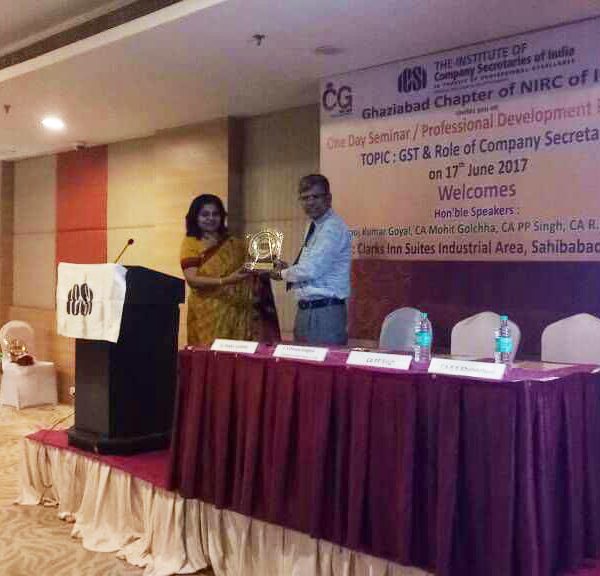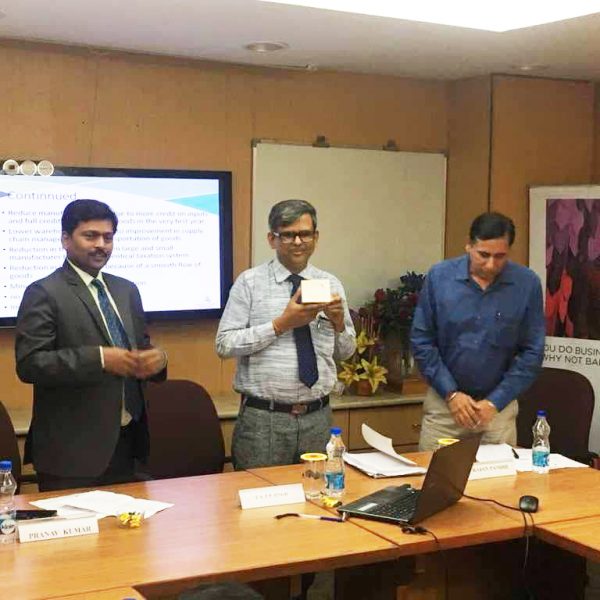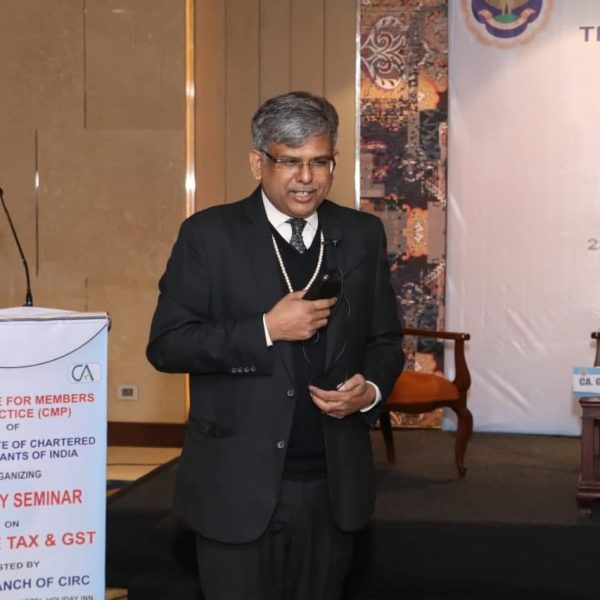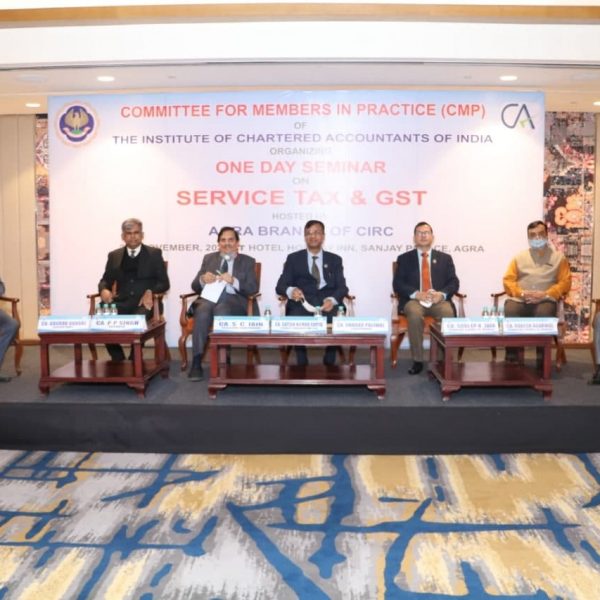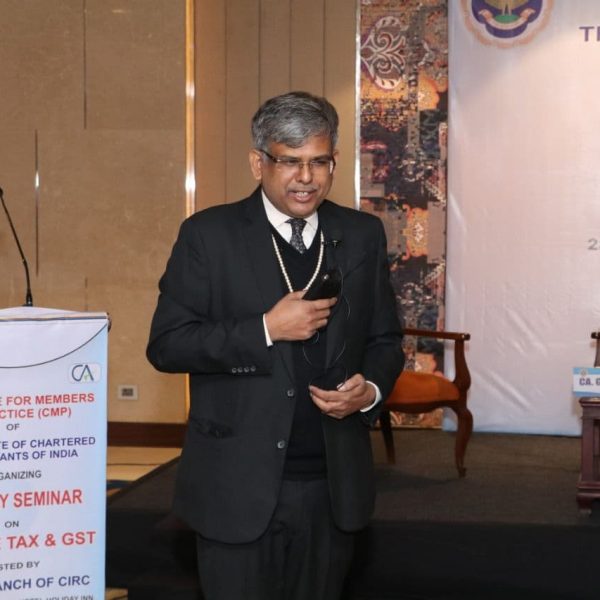Finance Act 2020 had introduced Sec 206C (1H) – which compelled the seller of goods to collect TCS on sale to eligible buyers subject to certain conditions. Amidst a lot of hue and cry the CBDT had finally implemented the same with effect from 1st Oct 2020. While the businesses took some time to adapt to the same owing to disruption of well settled market practices, the industry did, get use to the idea of collecting TCS on all products and barring a few exceptions, the collection and reporting of TCS was complied by the trade and industry alike. Professionals played their role and ensured that the same was well implemented across sectors.
In a surprise turn of events, Finance Act 2021, has inserted sec 194Q which reads as follows:
(1) Any person, being a buyer who is responsible for paying any sum to any resident (hereafter in this section referred to as the seller) for purchase of any goods of the value or aggregate of such value exceeding fifty lakh rupees in any previous year, shall, at the time of credit of such sum to the account of the seller or at the time of payment thereof by any mode, whichever is earlier, deduct an amount equal to 0.1 per cent of such sum exceeding fifty lakh rupees as income-tax.
Explanation. –For the purposes of this sub-section, buyer means a person whose total sales, gross receipts or turnover from the business carried on by him exceed ten crore rupees during the financial year immediately preceding the financial year in which the purchase of goods is carried out, not being a person, as the Central Government may, by notification in the Official Gazette, specify for this purpose, subject to such conditions as may be specified therein.
(2) Where any sum referred to in sub-section (1) is credited to any account, whether called suspense account or by any other name, in the books of account of the person liable to pay such income, such credit of income shall be deemed to be the credit of such income to the account of the payee and the provisions of this section shall apply accordingly.
(3) If any difficulty arises in giving effect to the provisions of this section, the Board may, with the previous approval of the Central Government, issue guidelines for the purpose of removing the difficulty.
(4) Every guideline issued by the Board under sub-section (3) shall, as soon as may be after it is issued, be laid before each House of Parliament, and shall be binding on the income-tax authorities and the person liable to deduct tax.
(5) The provisions of this section shall not apply to a transaction on which–
(a) tax is deductible under any of the provisions of this Act; and
(b) tax is collectible under the provisions of section 206C other than a transaction to which sub-section (1H) of section 206C applies.]
At the outset, on a plain reading of both sections, it is very much apparent that the onus of reporting and tax collection has been shifted from the seller to the buyer or in other words from the payee (receiver) to the payer. However, the confusion arises because the old section 206C (1H) remains intact and the same has not been altered at all. In this article we try to decode the applicability of sec 194Q and its interplay with Sec 206C (1H).
When does this section come into effect?
The Finance Bill 2021 had intended to make the section effective from 1st April 2021, however, a raging second wave of COVID ensured that the President’s assent to the Bill was delayed and thus the Finance Act 2021 has delayed the applicability of this section to 1st July 2021. Hence, transactions completed up to 30th June 2021, would be out of the purview of this section. (They may still be governed by Sec 206C (1H))
Who is supposed to deduct the TDS?
Buyer of the goods has been entrusted with the responsibility of deducting TDS from the payments to be made to the seller and depositing the same to the Govt. Buyer has been defined to mean a person whose total sale, gross receipt or turnover from the business carried on by him exceeds, INR 10 Crores for the immediately preceding Financial Year. This limit shall need to be checked on a year-on-year basis. The Central Government may exempt certain entities from the application of this section, subject to such conditions as may be specified.
Illustration:
| Figures in (INR – Crores) | |||||||
| FY | Turnover | Sales Realised | Advances Received | Realisation of previous year sales | Total Receipts | Applicability in 2021-22 | Reason |
| 2020-21 | 12 | 12 | 0 | 0 | 12 | Liable to deduct TDS | Turnover exceeds 10 Cr |
| 2020-21 | 12 | 9 | 0 | 0 | 9 | Liable to deduct TDS | Turnover exceeds 10 Cr |
| 2020-21 | 9.5 | 9 | 0 | 0 | 9 | Not Liable to deduct TDS | Turnover/Receipts below 10 Cr |
| 2020-21 | 9.5 | 9 | 1.2 | 0 | 10.2 | Liable to deduct TDS | Receipts exceed 10 Cr |
| 2020-21 | 9.5 | 9 | 0 | 1.2 | 10.2 | Liable to deduct TDS | Receipts exceed 10 Cr |
From whom such TDS is to be deducted?
TDS is to be deducted only from those sellers who are resident in India and from whom the total purchases or to whom the total payment during the Financial Year exceeds INR 50 Lakhs. The threshold needs to be evaluated separately for every seller for every Financial Year. Unlike for TCS, the section here says, credit or payment whichever is earlier. Hence, TDS shall be deducted in the month of purchase or payment which ever is earlier. This is a significant deviation from collection of TCS u/s 206C (1H) which triggered only on payment.
Another interesting thing to note is that the section would be applicable on purchase of Trading Goods as well as Capital Goods.
Treatment of transactions done prior to 30th June 2021.
Now an important point to ponder here is whether TDS u/s 194Q would be applicable in case Purchase was made on or before 30th June 2021 and payment is made after that OR if Payment was made in advance before 30th June 2021 and goods are received after that.
A careful reading of the section indicates that tax is to be deducted at the time of credit of such sum to the account of the seller or at the time of payment thereof by any mode whichever is earlier. Now in the above cases of payment/purchase before 30th June 2021, the point of taxation is before the date of implementation of this section. It has been held in a number of judicial rulings that “the law does not demand the impossible” (lex non cogitadimpossibilia), thus one cannot have been expected to deduct TDS before applicability. Now, the question arises, whether TDS should be levied, afterwards on prudence basis. In case of TCS, CBDT had clarified that even transactions, where sales have been made before the date of application but money is received afterwards, TCS would be applicable. Thus, even though legal position may be argued to the contrary, a prudent view may be taken to deduct TDS on transactions where one part of the transaction has already been concluded before the applicability of the section.
When is the section not applicable?
The section would not be applicable if:
- Gross Turnover/Sales/ Receipt of the assessee during immediately preceding FY does not exceed INR 10 Cr.
- If the consideration paid to the seller during the Previous year is less than INR 50 Lakhs
- The section would not apply to import transactions as it is applicable only in case of resident sellers. (In cases of import, a declaration of residency from the seller would now become mandatory)
- Transactions on which TDS may be deducted under any other sections of the Income Tax Act
- Transactions which are subjected to collection of TCS (except u/s 206C(1H)) (For instance)
- 206C(1) – Liquor, tendu leaves, forest produce, scrap, etc
- 206C(1F) – Motor vehicles exceeding Rs.10 lakhs in value
- 206C(1G) – LRS Transactions
An important point to note is that the export transactions have not yet been outright excluded from the purview of this section. However, one may argue that the TDS provisions would not be applicable to a Non-Resident or a Foreigner.
Rate of TDS
TDS shall be deducted @ 0.1%. Also Applying Sec 206AA, if PAN is not available, then TDS shall be deducted @ 5%.
What is the amount on which TDS is to be deducted?
TDS shall be deducted on the amount which is credited to the seller (for purchase) or paid to him in excess of INR 50 lakhs. It shall also be noted that although the section is applicable from 1st July 2021, the threshold of INR 50 Lakhs shall be considered from 1st April 2021.
The following illustrations shall give more clarity:
| Amount in INR Lakhs | ||||||||
| S.No | Purchases | Payment | TDS Liability | Amount liable to TDS | Comments | |||
| before 30th June | after 30th June | before 30th June | after 30th June | |||||
| 1 | 60 | 20 | 50 | 30 | Yes | 20 | Out of 30, 10 is paid towards purchase before 30th June | |
| 2 | 20 | 40 | 6 | 54 | Yes | 10 | Threshold of 50 is exceeded | |
| 3 | 70 | 0 | 5 | 65 | No | 0 | Amount is paid towards purchases before 30th June | |
| 4 | 30 | 100 | 130 | 0 | No | 0 | Amount is paid before 30th June, however, TCS may be applicable | |
| 5 | 25 | 35 | 0 | 30 | Yes | 10 | Threshold crossed for credits | |
| 6 | 0 | 60 | 60 | 0 | No | 0 | Amount is paid before 30th June, however, TCS may be applicable | |
| 7 | 60 | 0 | 0 | 60 | No | 0 | Amount is paid towards purchases before 30th June | |
Note 1 –A more conservative approach may be adopted to deduct TDS even on transactions where advance payment was made before 30th June and purchases have been made after the date of applicability.
Note2 – In situation 1 and 3 – seller may have to collect TCS (if seller meets the threshold criterion)
Now an important question is:
Which Section prevails – sec 194Q or Sec 206C (1H)?
To answer this question, one needs to read sec 206C (1H) again, which inter alia reads as follows:
Provided further that the provisions of this sub-section shall not apply, if the buyer is liable to deduct tax at source under any other provision of this Act on the goods purchased by him from the seller and has deducted such amount.
Sec 206C (1H) provides that a transaction on which TDS is applicable, shall not come under the purview of this section if such TDS has been deducted by the buyer. Thus, clearly both the sections are mutually exclusive and the provisions of Sec 194Q would supersede the provisions of Sec 206C(1H). This has been more clearly demonstrated by the table below:
| Buyer’s TO in Immediate PY | Seller’s TO in Immediate PY | Transaction amount | Section Applicable |
| 12 Cr | 11 Cr | 60L | 194 Q |
| 12 Cr | 8 Cr | 70 L | 194 Q |
| 12 Cr | 8 Cr | 30 L | Neither |
| 8 Cr | 12 Cr | 40 L | Neither |
| 8 Cr | 12 Cr | 60 L | 206C (1H) |
Thus, one may conclude that in case the seller’s turnover exceeds INR 10 Cr and the buyer’s turnover is less than INR 10 Cr, then Sec 206C(1H) would continue to be operational.
Consequences of non-deduction.
An important consequence of non-deduction of tax at source from transactions which attract TDS is the disallowance of expense to the extent of 30% of such expense. In some cases where due to a clerical error or oversight, some amount has escaped TDS this amount of disallowance may become a huge amount and thus the disallowance may be a harsh penalty on the assessee.
The assessee would also become an assessee in default u/s 201 and thus be liable for interest and penalty as applicable.
Treatment of Credit/Debit Notes
Case 1 – A purchase of 60 lakh is made and payment of 58 lakhs is made towards the same. A credit note of 2 lakhs is received for prompt payment.
In this case TDS would have to be deducted on the entire amount of INR 60 Lakhs as credit to the account would be of INR 60 Lakhs and not 58.
Case 2 – A purchase of 75 lakhs is made and recorded, however, later on there is a quality dispute and goods worth 10 lakhs are returned. In this case, although the net purchases are worth 65 lakhs, the TDS would have to be deducted on 75 lakhs as the total credit is 75 lakhs and TDS is deducted on Credit or payment whichever is earlier.
Case 3– A Debit Note is issued for any rate or quantity difference against an invoice. TDS would have to be deducted on such amount also as the same is to be credited to the party for purchases.
Some special cases
- Barter – In case of barter, both parties purchase, some goods from each other. Now, in this case, both parties would credit each other’s ledger for the purchase and hence would be liable to deduct TDS. Even payment clause is covered as the section mentions “any mode of payment”.
- Immovable Property – Immovable properties are excluded from the definition of goods and hence not liable for TDS under this section. Moreover, Properties where transaction value is more than INR 50 lakhs, TDS is deductible u/s 194IA.
- Software – Canned (Off the shelf) software have been defined as goods by the Supreme Court in a landmark judgement in the case of Tata Consultancy Services v State of AP. Thus, sale of off the shelf software would also attract TDS under this section.
- Freight, Insurance, etc – Where these amounts are reflected on the invoice, they should be considered as part of purchase value and accordingly TDS shall be levied on the same.
- Certificate for lower TDS deduction – Sec 197 has not been amended to include Sec 194Q in the list of beneficial sections where this certificate can be applied for. Thus, lower TDS deduction is not possible for this section.
Conclusion
Much has been said and written about the question of intent behind the provisions of Sec 206C (1H) and Sec 194Q, while it definitely defies logic as to what is the need of this section as all data pertaining to such transactions is already captured by the GSTIN. In the present scenario the chaos would only be heightened as a seller needs to check and maintain appropriate records of buyers who shall be deducting TDS to ensure that appropriate TCS compliance is undertaken by him in respect of buyers who would not be undertaking TDS due to turnover below the threshold limits.
Hopefully, professionals and industry would figure out an amicable solution for this.

